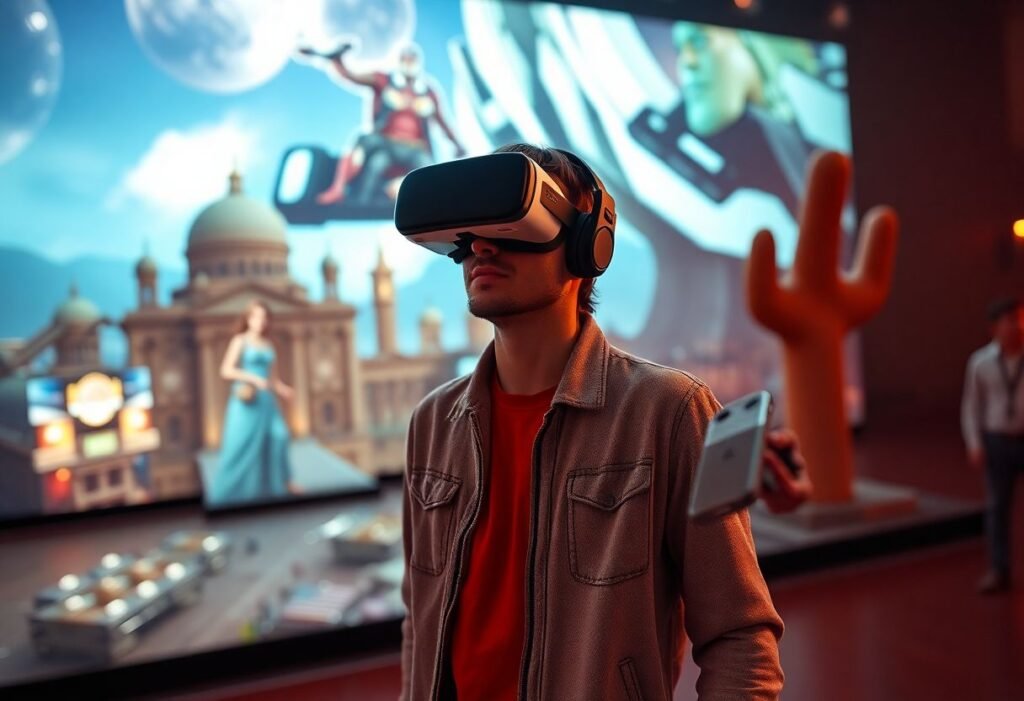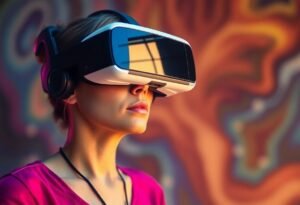The emergence of Virtual Reality (VR) has significantly impacted the realm of entertainment, pushing the boundaries of creativity and engagement. This innovative technology is reshaping how stories are told and how audiences experience them, creating immersive environments that were once only part of fiction.
Transforming Storytelling in Entertainment
Virtual Reality has transformed storytelling by allowing users to step into the narrative. Through the use of immersive experiences, VR enables a deeper emotional connection with characters and plots. Unlike traditional media, where viewers are passive observers, VR encourages active participation. Users can explore scenes from different angles and perspectives, making them feel as though they are part of the story. This innovation not only enhances the entertainment value but also opens new avenues for storytelling that are interactive and personal.
The Rise of Immersive Gaming
Gaming has seen unprecedented growth with the integration of Virtual Reality technology. Players can now fully immerse themselves in fantastical worlds, engaging with the environment like never before. With the introduction of VR headsets such as the Oculus Rift and HTC Vive, the gaming industry is experiencing a renaissance. These devices offer a three-dimensional landscape that players can explore, leading to a more engaging and thrilling experience. Virtual Reality in gaming not only captivates audiences but also offers developers a new playground for innovation.
Concerts and Live Events Redefined
Virtual Reality is revolutionizing live entertainment, bringing concerts and events to people worldwide. VR platforms allow fans to experience live performances from the comfort of their homes, providing access to shows that they might not have been able to attend otherwise. The integration of VR technology in live events boosts engagement, enabling fans to feel as though they are part of the action. This is particularly significant in a time when physical attendance can be limited, offering an alternative that keeps the spirit of live entertainment alive.
Education and Training Through VR
Beyond entertainment, Virtual Reality serves as a powerful tool for education and training within the entertainment industry. VR simulations allow aspiring filmmakers, musicians, and other creatives to practice in safe yet realistic environments. These VR training tools can help hone skills and provide experience in various fields, preparing individuals for real-world scenarios without the associated risks. By integrating education with entertainment, VR is fostering a new generation of creative professionals.
Future Trends in Virtual Reality Entertainment
The future of Virtual Reality in entertainment is promising, with continuous advancements in technology. Innovations such as eye-tracking and haptic feedback are set to enhance user experiences further. As VR technology becomes more accessible and affordable, it will likely spur creativity and collaboration among creators across the globe. The potential for new forms of entertainment is vast, with VR likely to unlock experiences that are currently unimaginable. Investment in VR innovation is essential for the evolution of this medium.
The Impact of Virtual Reality on Audience Engagement
Virtual Reality represents a seismic shift in how audiences engage with entertainment content. By placing users at the center of interactive experiences, VR fosters a sense of presence and connection that traditional media cannot achieve. As entertainment continues to evolve, the role of VR technology will become increasingly significant, promising to deliver experiences that resonate on a more personal level. Embracing this technology means more than just adapting to new tools; it represents a profound change in our cultural landscape.
Disclaimer: Content generated is for informational purposes only and is not a substitute for professional advice in entertainment or technology fields.





















